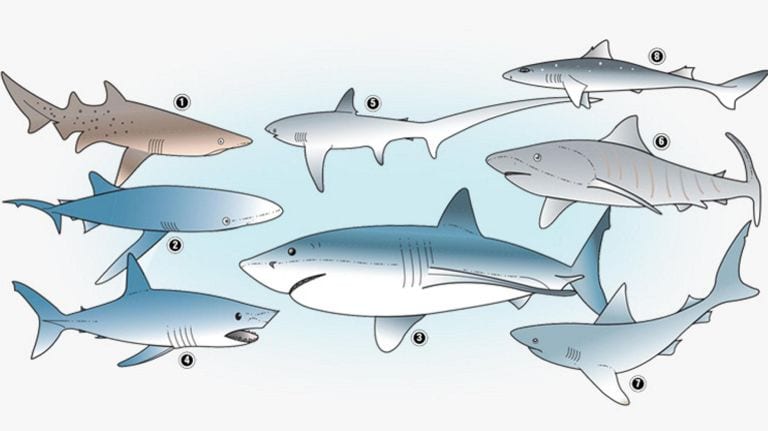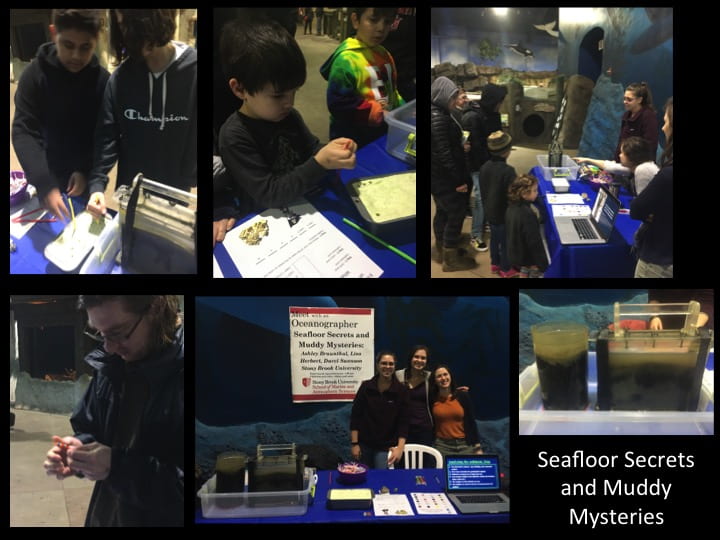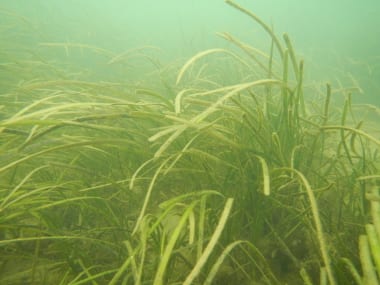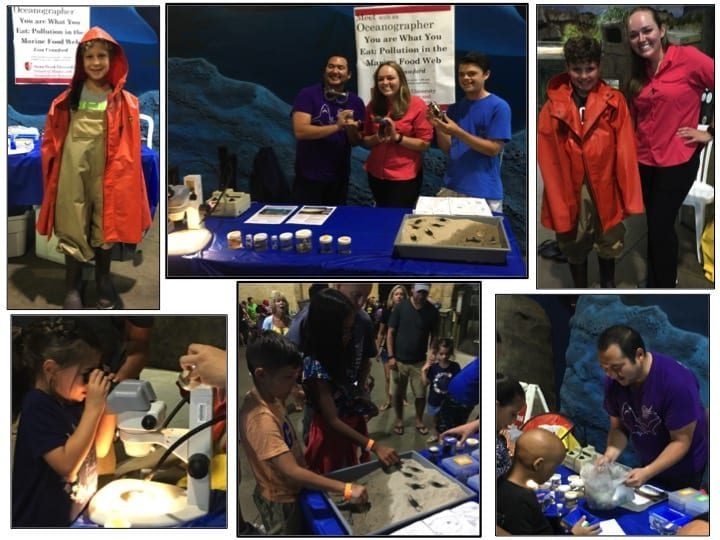Spent Saturday making sediment cores and solving mysteries of the seafloor with Ashley, Lisa, and Darci
Author Archives: Caroline L Schwaner
Climate Change– Tales from the Ocean!
What’s infecting our shellfish?
Ocean Acidification Experiments
Can Seagrasses Help With Ocean Acidification?
April 20, 2019 – Ocean Acidification: Seagrasses; A Last Hope
Alysson Lowell, Stony Brook University. Ocean acidification is further exacerbated by coastal influences like nutrient loading and runoff. The result is an environment more vulnerable and more intense for coastal marine organisms. Both low oxygen and high acidity combine to generate organisms more physiologically stressed than their open ocean counterparts. Seagrasses may provide a refuge for marine organisms in this highly dynamic and changing world. Highly productive producing oxygen rich and comparatively more basic environments, seagrasses are more attuned to the changing oceans than many of their macrophytic counterparts.
Eelgrass (Zostera marina) in Great South Bay. Photo from https://www.dec.ny.gov/lands/110813.html.
November at the Aquarium Learning About the Sharks of Long Island
Life is Jawesome- Unless You’re a Shark!
November 10, 2018
Oliver Shipley, Stony Brook University. In the media, sharks have long been painted as terrifying, blood-thirsty killers, but they are definitively more than that. Meet with a local shark scientist and learn about the role of sharks in governing healthy marine ecosystems, and why we should care about conserving their populations.

Photo Credit: https://www.newsday.com/long-island/sharks-long-island-1.19933809
September 22, 2018 –WANTED! Oxygen
Luis Medina, Stony Brook University. You may have heard of “dead zones” in the ocean, but what does this mean? Meet with local scientist and find out why the ocean is running out of oxygen, what areas this is happening to and the potential impacts on your favorite marine organisms!
Photo credit https://en.wikipedia.org/wiki/Dead_zone_(ecology)








